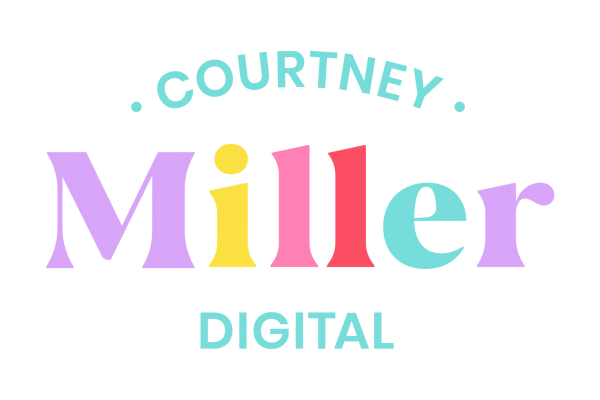Miller Digital
Social media and content marketing coach for entrepreneurs
Your target audience is your gold mine. Your community of people who are engaged with your business, love your content and trust your opinion. If you don’t know how to figure out who your target audience is for your business, this article is for you!

The first question you need to ask yourself is who are you? What do you do? Why do you do what you do? Without establishing these business foundations first, you can’t start to answer and build your target audience profile. You can learn how to do this here.
Keep all of the below questions in mind when you are writing content or creating a new product/service for your audience. The more you can create a persona and truly know who your target audience is, the better you will be able to connect with them.
Haven’t established your digital brand yet? Take my FREE Strong Brand Checklist course.
What problem are you trying to solve for your audience?
You obviously created your product or service for a reason. What’s that reason? Did you create an ebook because you wanted to teach a skill? Did you create a new product because you thought your audience would save time by using it?
Get specific on the problem you’re solving for your audience and how it is going to help them. If you create Lightroom presets, your problem for your audience is that they want a cohesive, beautiful Instagram feed. You’re solving that problem with your easy to use, downloadable presets.
What is your end goal or result with your target audience?
What do you want your audience to do when they visit your website/shop page/blog? Do you want them to buy your product, book a service with you, or sign up for an e-mail list? Do you want them to leave a review on your site?
Make sure you know what the end goal is, because this is your call-to-action to use on website copy, social media captions and other content.
What does your audience need and want?
Think of a few quick answers your audience would need and want based on your business niche. If you are a food blogger, you would know that your audience needs easy-to-follow recipes, quick dinner ideas and gluten-free ingredients. Something that they need to solve their problem right now.
However, they may want a cookbook that does all of that for them, or to have a personal meal plan created for them. And they want it at a certain budget-friendly price point.
What is your audience interested in?
What type of hobbies, products and websites does your audience enjoy? What do they value? What are their beliefs? What do they do for fun?
Let’s say you sell reusable food storage bags to replace plastic sandwich bags. Your audience might be women who make the household decisions in their family. They care about the environment, have their own vegetable garden, shop at consignment stores, buy from local shops and believe in holistic medicine. They might also like to DIY their home decor, enjoy knitting and love every type of herbal tea.
What is their demographics?
Demographics are items like their race, age, occupation, class status, education, weight, height and income. These can be crucial if you are targeting a specific type of customer like educated families with a higher disposable income.
This demographic piece will also be useful if you use online ads and can target these specific attributes.
Do you need some help to figure out who your target audience is? I got you, girl. Work directly with me for a 1:1 personalized marketing plan.
Tie it all together
Once you’ve answered all the questions, write them down on a piece of paper and keep it close by!
Think about your environmentally-conscious woman with her vegetable garden as you write your landing page. Imagine your food-loving reader as your create a gluten-free recipe for her on your blog. Would your aspiring blogger mom like the new Lightroom preset you created?
Now go find that audience with the interests, needs, and demographics you just created. Search for Facebook groups with those interests and follow your audience through keyword hashtags. By knowing who your target audience is and connecting with them directly, they will trust you as an expert in your field!
